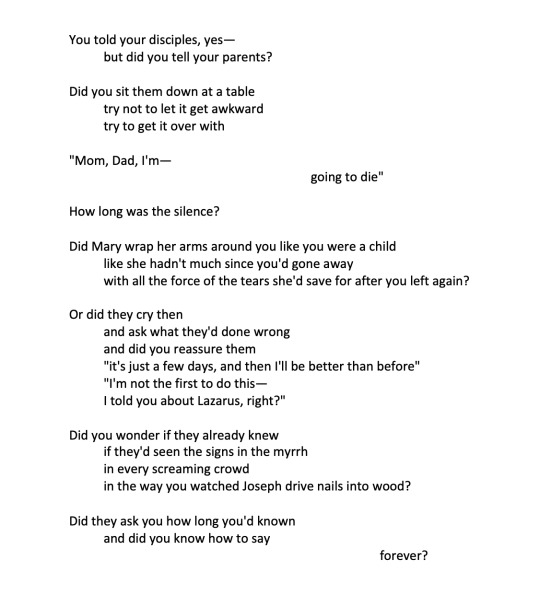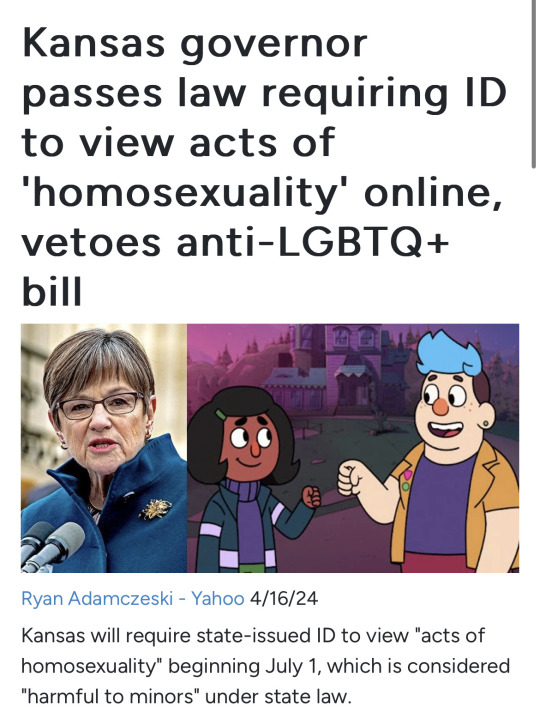Text
On the Identity of "Chat"
Like all the linguistics folks on Tumblr, I've been sent the "chat is a fourth person pronoun" post by a bunch of well-meaning people and and I've been thinking waaay too much about it. @hbmmaster made a wonderful post explaining exactly why "chat" ISN'T a fourth person pronoun, and after reading it I wanted to go a little deeper on what it might actually be doing linguistically, because it is a really interesting phenomenon. Here's a little proposal on what might be going on, with the caveat that it's not backed up by a sociolinguistic survey (which would be fun but more than I could throw together this morning).
On Pronouns
Studying linguistics has been really beneficial for me because understanding that language is constantly changing helped me to become comfortable with using they/them pronouns for myself. I've since done a decent amount of work with pronouns, and here are some basic ideas.
A basic substitution test shows that "chat" is not syntactically a pronoun: it can't be replaced with a pronoun in a sentence.
"Chat, what do we think about that?"
"He*, what do we think about that?" (* = ungrammatical, a native speaker of English would think it sounds wrong)
Linguists identify pronouns as bundles of features identifying the speaker, addressee, and/or someone outside the current discourse. So, a first person pronoun refers to the speaker, a second person pronoun refers to the addressee, and a third person pronoun refers to someone who is neither the speaker nor the addressee (but who is still known to the speaker and addressee). This configuration doesn't leave a lot of room for a "fourth" person. But the intuition people have that "chat" refers to something external to the discourse is worth exploring.
Hypothesis 1: Chat is a fourth-person pronoun.
We've knocked this one right out.
Hypothesis 2: Chat is an address term.
So what's an address term? These are words like "dude, bro, girl, sir" that we use to talk to people. In the original context where "chat" appears - streamers addressing their viewers - it is absolutely an address term. We can easily replace "chat" with any of these address terms in the example sentence above. It's clear that the speaker is referring to a specific group (viewers) who are observing and commenting on (but not fully participating in) the discourse of the stream. The distinction between OBSERVATION and PARTICIPATION is a secret tool that will come in handy later.
But when a student in a classroom says "wow chat, I hate this," is that student referring to their peers as a chat? In other words, is the student expecting any sort of participation or observation by the other students of their utterance? Could "chat" be replaced with "guys" in this instance and retain its nuance? My intuition as a zillenial (which could be way off, please drop your intuitions in the comments) is that the relationship between a streamer and chat is not exactly what the speaker in this case expects out of their peers. Which brings me to...
Hypothesis 3: chat is a stylistic index.
What's an index in linguistics? To put it very simply, it's anything that has acquired a social meaning based on the context in which it's said. In its original streaming context, it's an address term. But it can be used in contexts where there is not a chat, or even any group of people that could be abstracted into being a chat. Instead, people use this linguistic structure to explicitly mimic the style which streamers use.
And that much seems obvious, right? Of course people are mimicking streamers. It doesn't take a graduate degree to figure that out. What's interesting to me is why people choose to employ streaming language in certain scenarios. How is it different from the same sentence, minus the streamer style?
This all comes down to the indexicality, or social meaning, of streamer speak. This is where I ask you all to take over: what sorts of attitudes and qualities do you associate with that kind of person and that kind of speech? I think it has to do with (here it comes!) the PARTICIPANT/OBSERVER distinction. By framing speech as having observers, a speaker takes on the persona of someone who is observed - a self-styled celebrity. To use "chat" is to position oneself as a celebrity, and in some cases even to mock the notion of such a position. We can see a logical path from how streamers use "chat" as an address term to how it is co-opted to reference streamer culture and that celebrity/observer relationship in non-streaming mediated discourse. If we think about it that way, then it's easy to see why the "fourth person pronoun" post is so appealing. It highlights a discourse relationship that is being invoked wherein "chat" is not a group but a style.
1K notes
·
View notes
Text
the only thing im still on spotify for is when i look up a book im reading and someone else has made a playlist with the vibes of the book and it has music that i actually like. that makes it all worth it
48 notes
·
View notes
Text
reblog to give the person you reblogged from the strength to complete The Task™
96K notes
·
View notes
Text
Candace and doofenshmirtz would be tumblr mutuals i think
14K notes
·
View notes
Text
When you’ve put off reading/watching [popular thing] for so long that it’s not cool anymore and tumblr hates it now, what do you do at that point
1 note
·
View note
Text
A school bully who keeps up with intercommunity issues so that he always uses the most non-problematic terminology to insult you with
8K notes
·
View notes
Text
they should make an international travel that is free if you're internet friends
6K notes
·
View notes
Text

[writes about Jesus but it’s actually about being trans] [writes about being trans but it’s actually about Jesus]
26K notes
·
View notes
Text
So none of the humans in Gravity Falls noticed when Ford was replaced by his twin, which makes sense, he was a recluse in the woods who probably only infrequently came into town for coffee or groceries. And also a secret mind-wiping cult was on the loose.
But as reclusive as he was around the humans, he got VERY social with the local supernatural entities. He raised a shapeshifter, he kept a gnome in a cage, he yelled at Steve with a megaphone. The local paranormal community was probably very familiar with the excited six-fingered human who traipsed around the woods conducting interviews and taking notes.
So, what did they think when he suddenly vanished, to be replaced by a five-fingered con artist who completely ignored the supernatural entities and began bringing humans around the shack?
I propose this:
None of the supernatural entities realized that he's Ford's twin.
They assume that as part of Ford's studies, he summoned up his own evil doppelgänger, and it killed him and took over his life. As doppelgängers are wont to do.
Which makes Stan a member of the paranormal community in their eyes; but if he'd rather try to blend in among the humans, hey, that's his business. They just won't send him invites to the town's magical meet-ups. He is, after all, an EVIL doppelgänger.
11K notes
·
View notes
Text
maybe its just me but the concept of two people being platonically obsessed with each other is much better and funnier than anything involving romantic feelings
1 note
·
View note
Text

This is what all those internet censorship and anti-lgbtq laws were leading towards, and always have been.
0 notes



